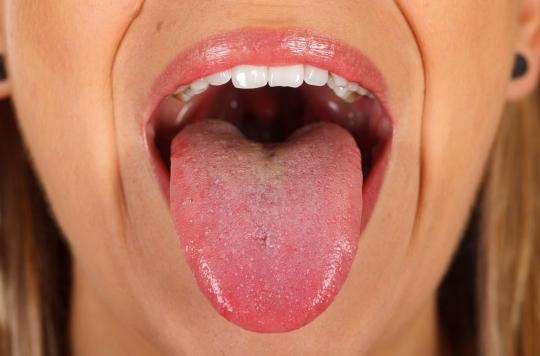The presence of certain pathogens in the mouth would be a sign of the development of esophageal cancer.

- Cancer patients have significantly higher rates of smoking and alcohol consumption and poor gum condition.
- An increased prevalence of two specific bacteria (Streptococcus anginosus and Tannerella forsythia) in dental plaque and one in saliva (Aggregatibacter actinomycetemcomitans) are associated with an elevated risk of esophageal cancer.
Esophageal cancer is the sixth deadliest cancer, the fault of an often late diagnosis which reduces the chances of recovery. Analysis of oral bacteria could solve part of this problem, reveal Japanese researchers from the Tokyo Medical and Dental University (TMDU). In a study published on November 6 in the journal Cancerthey suggest that the presence in large quantities of certain oral pathogens is a sign of the development of esophageal cancer.
Pathogens more present in dental plaque than in saliva
To explore the characteristics of the oral bacterial community in patients with esophageal cancer, the researchers collected dental plaque and saliva samples from 61 patients with this disease. They compared them with those of 62 healthy controls. Using a technique called real-time polymerase chain reaction, researchers examined DNA extracted from plaque and saliva samples to determine the abundance of seven common periodontal pathogens in the bacterial population.
The results showed that cancer patients have significantly higher rates of smoking and alcohol consumption and poor gum condition. “Interestingly, five of the seven pathogens were more abundant in the dental plaque of cancer patients than in healthy controls, with the detection rate of six of the seven pathogens being significantly higher in cancer patientsreveals the main author, Satoshi Miyake. On the other hand, only two of the seven pathogens, Aggregatibacter actinomycetemcomitans and Streptococcus anginosus, were more abundant in the saliva of cancer patients..”
High alcohol consumption
Researchers have determined that an increased prevalence of two specific bacteria (Streptococcus anginosus and Tannerella forsythia) in dental plaque and one in saliva (Aggregatibacter actinomycetemcomitans) are associated with an elevated risk of esophageal cancer. Added to this is high alcohol consumption. “The results of the study are an interesting indication of the diagnostic potential of oral bacteria in esophageal cancer and could form the basis of future screening methods.”, concluded the researchers.
.

















